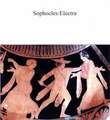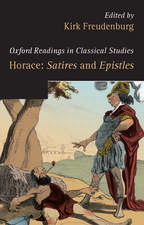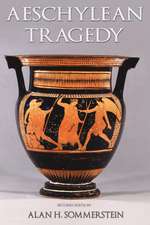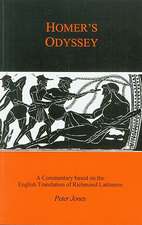Seneca: Phaedra: Companions to Greek and Roman Tragedy
Autor Professor Roland Mayeren Limba Engleză Paperback – 23 oct 2002
Din seria Companions to Greek and Roman Tragedy
- 14%
 Preț: 163.24 lei
Preț: 163.24 lei - 9%
 Preț: 150.96 lei
Preț: 150.96 lei - 9%
 Preț: 150.96 lei
Preț: 150.96 lei - 7%
 Preț: 163.71 lei
Preț: 163.71 lei -
 Preț: 163.24 lei
Preț: 163.24 lei - 14%
 Preț: 163.24 lei
Preț: 163.24 lei - 14%
 Preț: 163.42 lei
Preț: 163.42 lei - 14%
 Preț: 163.24 lei
Preț: 163.24 lei - 7%
 Preț: 163.71 lei
Preț: 163.71 lei - 14%
 Preț: 163.24 lei
Preț: 163.24 lei -
 Preț: 163.34 lei
Preț: 163.34 lei - 8%
 Preț: 152.01 lei
Preț: 152.01 lei - 7%
 Preț: 163.71 lei
Preț: 163.71 lei - 15%
 Preț: 150.59 lei
Preț: 150.59 lei - 14%
 Preț: 163.71 lei
Preț: 163.71 lei -
 Preț: 163.71 lei
Preț: 163.71 lei - 15%
 Preț: 162.54 lei
Preț: 162.54 lei - 24%
 Preț: 150.59 lei
Preț: 150.59 lei - 14%
 Preț: 172.27 lei
Preț: 172.27 lei - 15%
 Preț: 176.07 lei
Preț: 176.07 lei - 23%
 Preț: 234.44 lei
Preț: 234.44 lei -
 Preț: 163.71 lei
Preț: 163.71 lei - 7%
 Preț: 164.05 lei
Preț: 164.05 lei -
 Preț: 150.59 lei
Preț: 150.59 lei - 14%
 Preț: 164.40 lei
Preț: 164.40 lei - 14%
 Preț: 163.34 lei
Preț: 163.34 lei - 15%
 Preț: 150.33 lei
Preț: 150.33 lei - 14%
 Preț: 169.62 lei
Preț: 169.62 lei - 24%
 Preț: 170.42 lei
Preț: 170.42 lei - 24%
 Preț: 163.24 lei
Preț: 163.24 lei - 24%
 Preț: 157.41 lei
Preț: 157.41 lei - 24%
 Preț: 150.68 lei
Preț: 150.68 lei
Preț: 163.52 lei
Preț vechi: 190.64 lei
-14% Nou
Puncte Express: 245
Preț estimativ în valută:
31.29€ • 32.55$ • 25.83£
31.29€ • 32.55$ • 25.83£
Carte tipărită la comandă
Livrare economică 14-28 aprilie
Preluare comenzi: 021 569.72.76
Specificații
ISBN-13: 9780715631652
ISBN-10: 0715631659
Pagini: 160
Dimensiuni: 135 x 215 x 11 mm
Greutate: 0.22 kg
Ediția:New.
Editura: Bloomsbury Publishing
Colecția Bristol Classical Press
Seria Companions to Greek and Roman Tragedy
Locul publicării:London, United Kingdom
ISBN-10: 0715631659
Pagini: 160
Dimensiuni: 135 x 215 x 11 mm
Greutate: 0.22 kg
Ediția:New.
Editura: Bloomsbury Publishing
Colecția Bristol Classical Press
Seria Companions to Greek and Roman Tragedy
Locul publicării:London, United Kingdom
Notă biografică
Roland Mayer is Professor of Classics in the University of London. He has written widely on a number of Roman authors and issues, and in 1990 with Michael Coffey published an edition with commentary of Seneca's Phaedra (Cambridge University Press).
Recenzii
Mayer has produced a good general introduction to the Phaedra and, to some extent, to Senecan tragedy as a whole. It attains most of the goals to which this admirable series of companions aspires and will be found very useful by anyone approaching the play for the first time.
Descriere
Phaedra is one of Seneca's most successful tragedies. This book introduces the reader to the complex dramatic and literary inheritance which Seneca appropriated and in his turn bequeathed, and he sets out some of the main lines of contemporary interpretation and performance practice for this play.


















